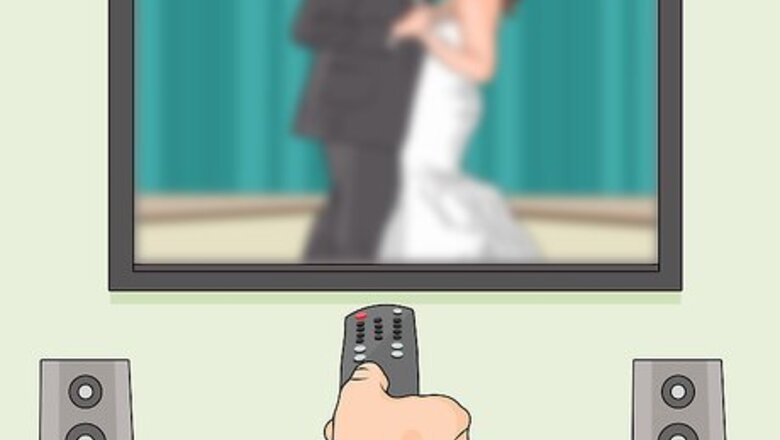
views
Cutting Down

Limit television time to three or four hours maximum. You might watch TV from the moment you get home from work each day until late at night or early morning. Create a goal for yourself to limit your TV usage to less than half of this time. Aim to watch less than four hours per day. Make a schedule for yourself each day that includes TV time and stick to that. You might also set an alarm signifying when to turn the TV off.
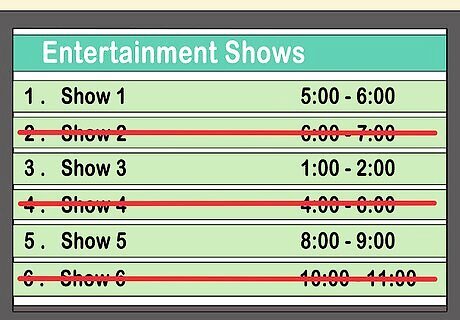
Cut the shows you watch in half. Assess which of the shows you watch currently can be cut from your list. Perhaps you do not enjoy some of these much lately or feel that they are a waste of your time. Cut them and continue watching those that you are most interested in. If you don’t want to watch the show but still want to follow the story, you can read the synopses online.

Cut out some of your TV subscriptions. In addition to television shows, you can also cut out some of your paid TV subscriptions. If you have several different streaming services like Hulu, Netflix, or HBO Go in addition to cable, consider cutting at least one or two of these. You will save money, time and have fewer opportunities to get addicted to new shows.
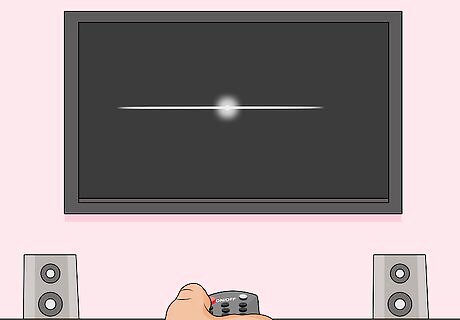
Avoid channel surfing. After you have made a commitment to only watch a certain number of shows, commit yourself to only watching those. After you finish your shows for the day, turn off the television and avoid getting caught up in a new programme or film.
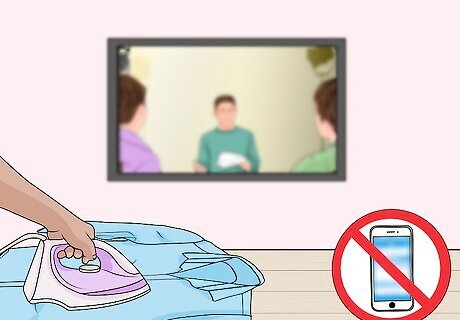
Multitask strategically while watching TV. When you do watch TV, try to spend time enjoying it and being mindful so that you don’t have to watch any episodes on repeat or via online catch-up sites. Avoid reading or sending emails during this time, and instead do things like ironing, cooking or folding laundry. Avoid talking on the phone to family or friends during this time, as well.
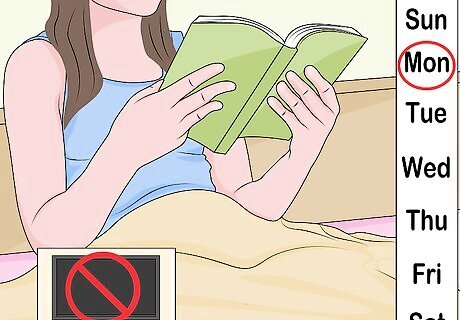
Have one television-free day per week. Start by spending one day completely unplugged. Designate one day per week that you will spend doing other activities like reading, doing homework, catching up with household chores you've been putting off, or spending time connecting with your partner. Try small sessions without TV, if an entire day feels like too much. Start small with an hour and then increase these breaks over time. A good way to do this is to simply not watch programmes you dislike. Don't like the programme that comes on before the one you want to watch? Don't watch it then!
Quitting Completely
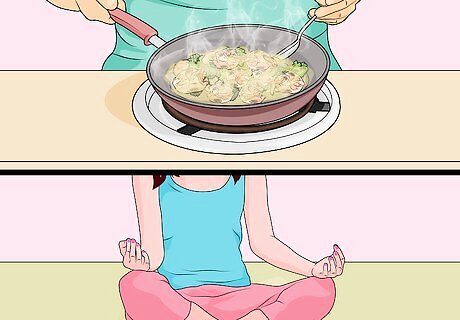
Avoid turning on the TV as soon as you get in. Though it can be tempting to use television as a way to unwind after a long, boring day at work or school, use those first few moments at home more strategically. Phone a friend, meditate, or exercise. Cook yourself a healthy meal or take a walk. Taking this first step can make it easier for you to resist television later in the day.
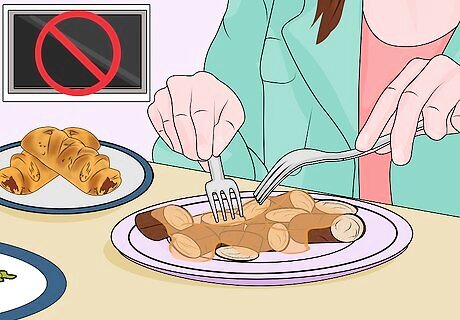
Focus on your food. Another way to break your television addiction is to avoid eating while watching TV. You do not want to associate everything that you do, like eating or unwinding, with the television. Instead, focus on eating, savoring and enjoying your food. You might also lose weight as you will be more aware of your eating and focused on how full you feel.

Give away your television set. The best and quickest way to cut out your addiction is to completely get rid of your TV. Put it up for sale, or give it away to a family member. If you will.want it back at some point, perhaps loan it to a friend to keep locked in storage. If you want the TV set back, only lend it to someone you completely trust.
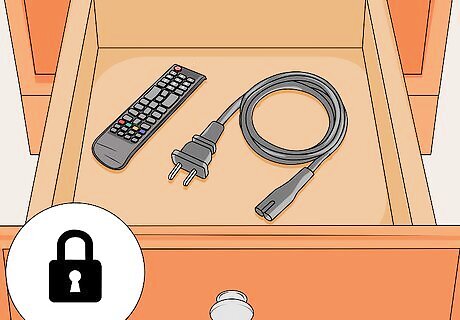
Lock away the remote or necessary cables. Another way to beat your TV addiction without having to get rid of your TV is to put away the remote control or any cables that allow the television to function properly. This way, if you should decide to begin watching television again, you can do so more readily.

Limit where you can watch TV. In addition to watching shows on TV, you might be watching them online. Block sites like Netflix and Hulu from being used on your computer so that you aren’t tempted to binge watch programmes. If you have the catch-up service apps on your mobile phone, delete them.
Alternative Activities

Interact with your family. Get involved in the lives of your children, parents, siblings and other members of your immediate family. Phone them up regularly to arrange time to hang out. Spend some time each day interacting with your family. You might even plan a family reunion.
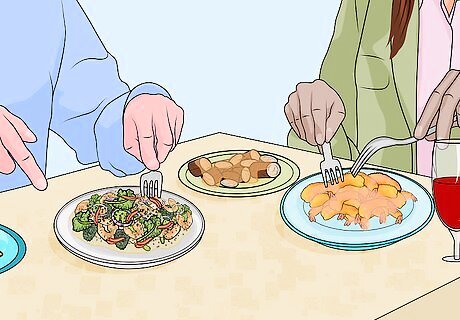
Spend time with friends. In addition to family, spend time with friends as well. If possible, avoid going to the cinema or over to their house to watch a programme. Instead, plan dinners, parties, visits to the beach, or trips to the bowling alley or skating rink.
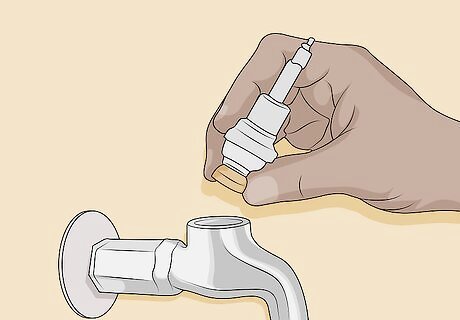
Practice mindfulness in all interactions. Beyond your family and friends, there are likely many others that you interact with on a day to day basis like the janitor who works in your office, the dinner lady in your school, or your work colleagues. Instead of tuning them out or putting in your earphones, engage with them in conversation. This will help you stay more connected to the real world.

Take care of your home. Take a good look around you and attend to any household duties that may need to be taken care of. This can include anything from fixing a leaky tap to fixing up the garden. Improving your cooking or DIY skills is also another option to consider.

Take a class. Register for any courses that you are interested in or even consider going back to school. This will make a great and significant demand on your time. This will also keep you occupied and productive.
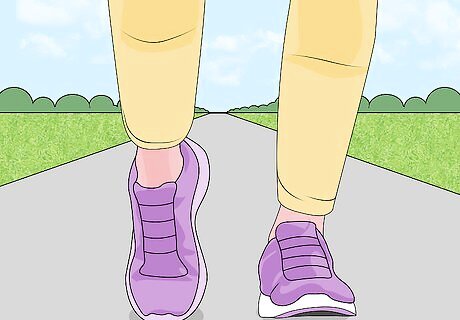
Choose another hobby. There are many other activities to engage in besides television. Spend some time exploring old hobbies of yours and developing new ones. You can do things like reading, horse riding, dancing, painting, or gardening.

Head outdoors. There is a whole exciting world outside of your home that you have likely not explored because of your TV addiction. Go out into your neighborhood and take a walk. Go hiking or camping for a weekend with your friends. Plan a trip to the lake and go canoeing or kayaking. These activities are good for both physical and mental health.



















Comments
0 comment